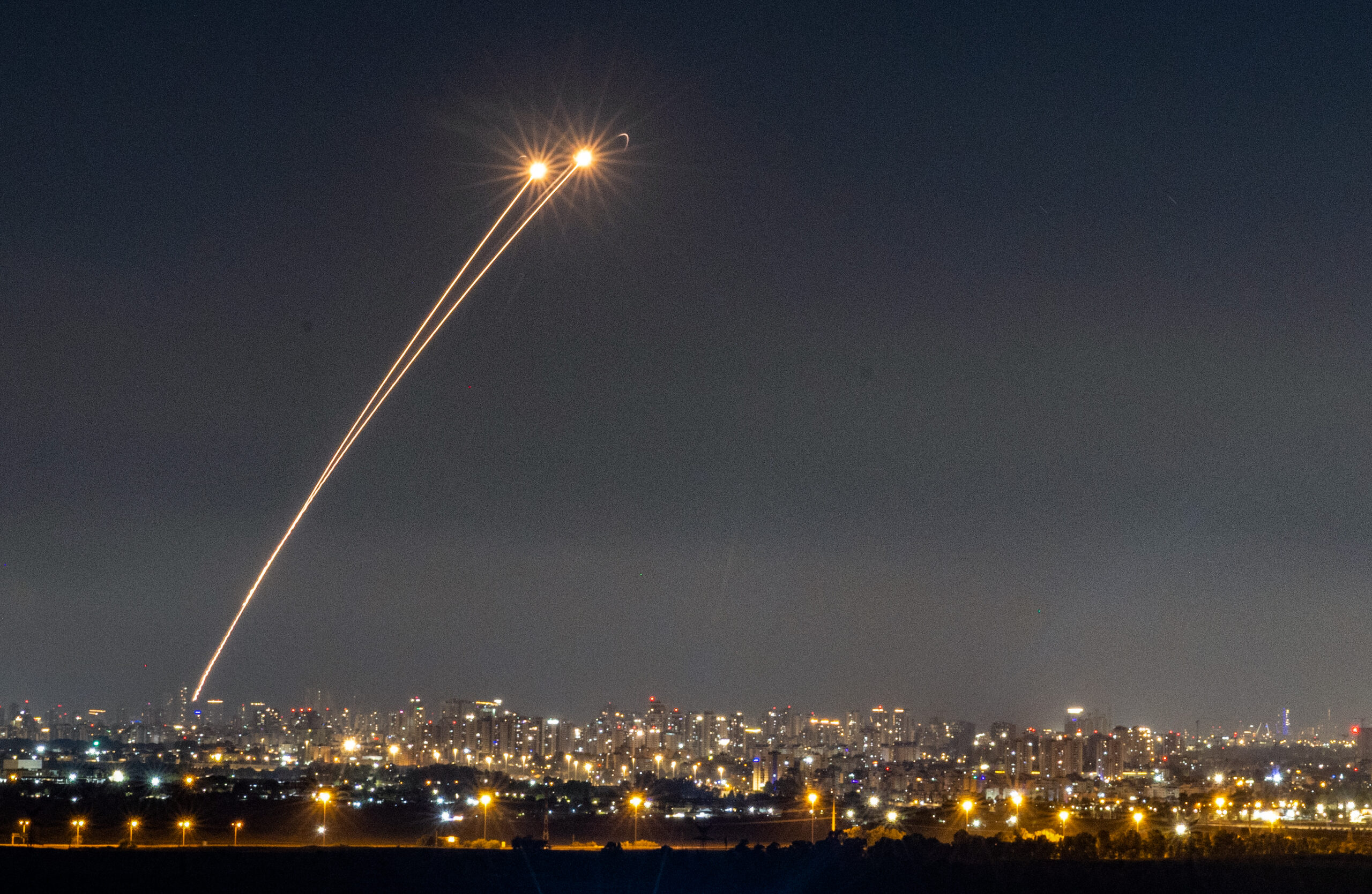The bombs that obliterated Iran’s nuclear facilities Sunday night weren’t just military strikes—they were plot points in humanity’s greatest story. That’s the extraordinary perspective Rabbi Yosef Bronstein offered just days before American stealth bombers turned his narrative theory into breaking news.
“The Bible is a story,” the Yeshiva University philosophy professor told a global audience Thursday evening. “It has a beginning, a middle, and an end—and we are the characters writing its final chapters.”
His thesis was unlike anything being said by other commentators: this isn’t about ancient prophecies coming true, but about understanding ourselves as active participants in a divine narrative that began with creation and is racing toward its climactic conclusion. By Sunday night, as President Trump announced Iran’s nuclear program had been “completely and totally obliterated,” Rabbi Bronstein’s vision of real-time biblical storytelling seemed prophetic.
The author of “Engaging the Essence: The Torah Philosophy of the Lubavitcher Rebbe” wasn’t offering traditional religious commentary. Instead, he presented something far more compelling: a framework for understanding current events as the latest chapters in the ultimate story ever told.
“The Bible begins with Genesis—’In the beginning God created the heavens and the earth’—and ends with the eschatological perfect world where God’s presence is revealed for all to see,” explained Rabbi Bronstein, who leads a rabbinical training center in Efrat and holds a PhD in Talmudic studies. “In between, you have an unfolding story where God is constantly trying to push the world forward from creation all the way to redemption.”
This narrative approach transforms everything. Wars aren’t just conflicts—they’re plot devices. Victories aren’t just military achievements—they’re character development. And the recent destruction of Iran’s nuclear capabilities isn’t just geopolitical success—it’s the story advancing toward its predetermined conclusion.
Rabbi Bronstein drew inspiration from an unlikely source: J.R.R. Tolkien, author of The Lord of the Rings. In his essay “On Fairy Stories,” Tolkien explained why humans are so drawn to fantasy narratives. Tolkien wrote: “The Bible contains a fairy story, or a story of a larger kind, which embraces all of the essence of fairy stories.”
“What is the Bible?” Rabbi Bronstein asked. “It’s similar to a fantasy book. There’s a beginning, humble beginnings, a middle, character development, good versus evil, struggle, ups and downs. But ultimately, the same way an author wants to lead the heroes to the end where all pieces fit together, to a place of consolation and redemption—that is what God does in human history.”
This perspective makes the recent Iran operation far more than military strategy. It represents the story’s heroes—Israel and the United States—advancing the plot against the forces of evil toward the narrative’s resolution. President Trump’s bold decision to join Israel in destroying Iran’s nuclear facilities demonstrated what Rabbi Bronstein called God working through willing heroes. Where other presidents and nations hesitated, Trump acted decisively, making America an active participant in what Rabbi Bronstein sees as the divine story’s climax. Rabbi Bronstein noted the “statistical improbability” of recent events: October 7th representing total intelligence failure while Israel’s Iran intelligence proved devastatingly accurate. “Looking backwards, we have to see the divine providence that allowed us to weaken all of Iran’s proxies one by one until we could cut off the head of the snake.”
The snake’s head was indeed severed Sunday night, exactly as the story seemed to demand.
Rabbi Bronstein’s most powerful insight concerned the role of war in this divine narrative. Unlike those who see war as tragedy to be avoided, he presented it as plot advancement. Quoting Rabbi Abraham Isaac Kook: “When a great war happens in the world, the messianic forces are stirring.” Wars aren’t interruptions to the story—they’re how the story moves forward.
“When wars are forced upon us,” Rabbi Bronstein explained, “the biblical perspective is that it is God who is orchestrating these wars in order to move history forward toward the end of the story.” The image he shared was telling: D-Day, where good and evil clashed and divine providence worked through Allied heroes to defeat Nazi wickedness.
Sunday’s coordinated US-Israel strikes follow the same narrative pattern. President Trump’s willingness to join Israel in this fight—where other leaders would not—exemplifies Rabbi Bronstein’s vision of God orchestrating events through brave proxies willing to play their heroic roles.
Rabbi Bronstein’s framework reveals why this moment feels so significant. We aren’t just witnessing geopolitical maneuvering—we’re watching the Bible’s story reach its crescendo. The coordinated action between Israel and America, with Trump boldly stepping into the role other leaders avoided, represents exactly what Rabbi Bronstein described: heroes willingly advancing God’s narrative toward its destined conclusion.
Whether through geopolitical action or simple acts of kindness, every person has a role in advancing the narrative toward its destined conclusion. “If that means living out biblical values, doing a favor for a neighbor, supporting Israel from around the world—whatever small things we can do to help move the story forward.”
Three days after his presentation, as Iran’s nuclear facilities lay in ruins and the world witnessed what seemed like divine intervention through human action, Rabbi Bronstein’s vision of participatory biblical narrative seemed less like literary theory and more like an instruction manual for understanding our times.
We aren’t just witnessing history—we’re writing the Bible’s final chapters. And the story, Rabbi Bronstein suggests, is approaching its long-awaited happy ending.





